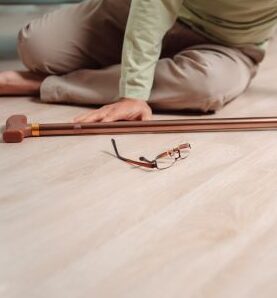
The medical costs alone in elderly falls total over $50 billion per year. Most older adults have pre-existing medical conditions, which increases the risk of serious injury and drives up medical treatment costs. If Medicare or a private health insurance company pays these costs, we all pay them, in the form of higher taxes and higher premiums. You and I shouldn’t have to pay for a landowner’s negligence.
Landowners are negligent in these situations if they had a legal responsibility to safely maintain the property, which they usually do. Furthermore, a landowner must know about, or should know about, the injury-causing hazard. That’s usually the case as well.
A bare-bones duty/knowledge case is usually insufficient to obtain maximum compensation for victims. A Columbia personal injury attorney must also be prepared to refute some common insurance company defenses. These companies and other negligence defendants don’t care about what is right or fair. They only care about their own profits. So, their lawyers pull out all the stops in an attempt to reduce or deny compensation to elderly fall injury victims.
Comparative Fault
Contributory negligence might be the most common insurance company defense in personal injury matters. Both spouses are usually partially at fault for a divorce, but one spouse bears the greater fault. Likewise, owners and victims are often each partially at fault for a fall, but the primary responsibility usually falls on the owner.
Legally, South Carolina is a modified comparative fault state with a 51 percent threshold. The defendant is responsible for a proportionate share of damages if the plaintiff’s negligence did not exceed the defendant’s negligence.
A wet spot on a floor is the classic example. Arguably, the victim should have watched where s/he was going, and the owner should have cleaned up the spill.
We covered owner negligence above. If the spill just happened, it’s not fair to hold the owner fully responsible for damages. Victim negligence works the same way. If Tom didn’t see a wet spot on the floor, that doesn’t mean Tom was negligent.
Many older adults have vision issues. They cannot see hazards like spills on floors, especially if the lights are low.
Assumption of the Risk
In South Carolina, this defense is a lot like contributory negligence. Frequently, when employees report spills, they put a warning sign next to the spill, and remove the sign after they clean the floor. Contrary to popular myth, a warning sign isn’t an owner’s get-out-of-jail-free card.
An insurance company lawyer must still prove the victim saw the sign, could read the sign, and could understand what the sign meant. These first two elements are often difficult to establish in elderly fall cases, mostly because of the aforementioned eyesight issues.
Furthermore, assumption of the risk usually isn’t a complete defense to a fall injury claim. The contributory negligence percentage rules usually apply in assumption of the risk cases.
Open and Obvious
This defense could be a complete defense to a fall injury claim. South Carolina owners aren’t negligent as a matter of law if an open and obvious hazard caused a fall. Such hazards usually include things like displays in grocery store aisles.
In addition to vision problems, the gait disorders that affect many older people often come into play. Since many of these individuals shuffle their feet when they walk, if they stumble, they cannot regain their balance, and they usually fall. Due to other pre-existing medical conditions, these falls almost always cause serious injuries.
Connect With a Hard-Hitting Richland County Lawyer
Injury victims are entitled to significant compensation. For a free consultation with an experienced personal injury lawyer in Columbia, contact the Marc Brown Law Firm. Virtual, home, and hospital visits are available.
Source:
cdc.gov/falls/data/fall-cost.html